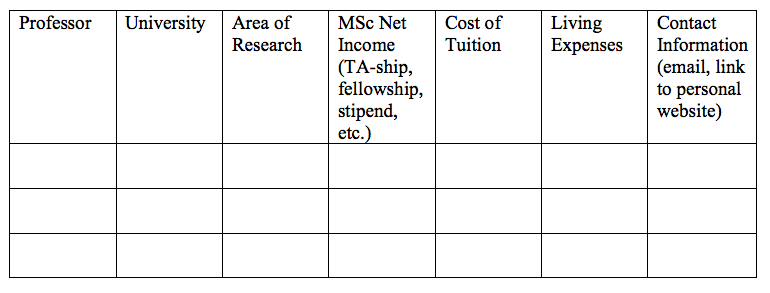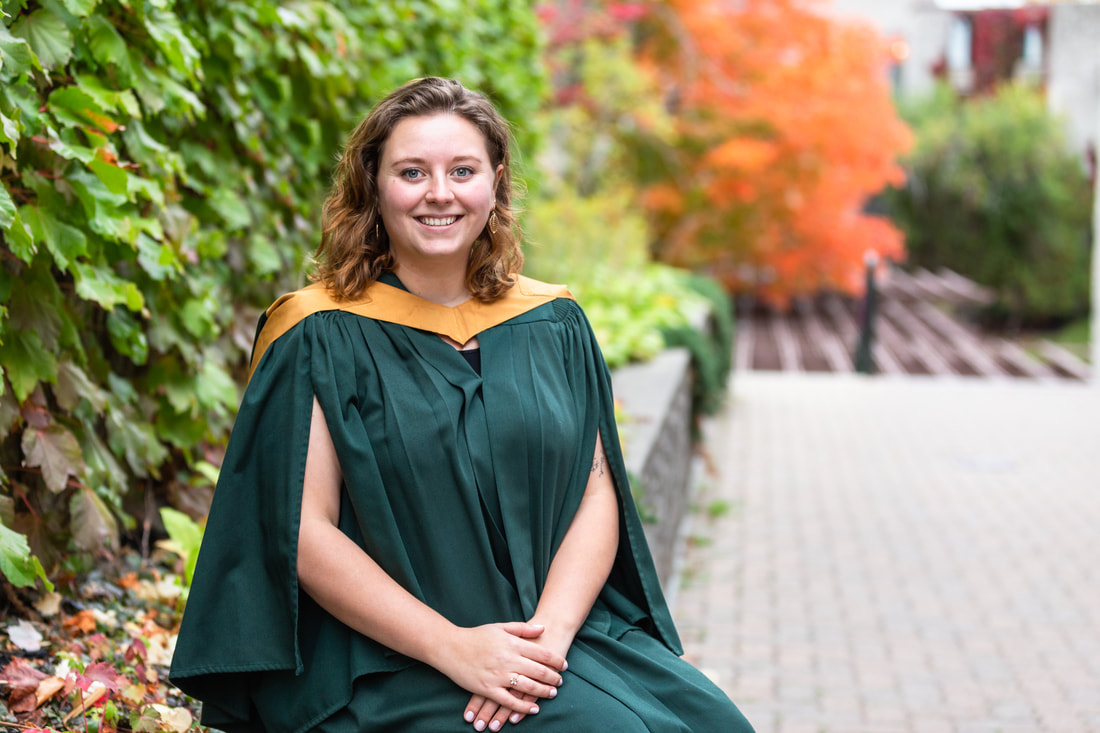|
by Meghan Ward Finishing up your undergraduate degree is a feat in and of itself, so congratulations! If you are considering continuing on in academia, the next step might be a Master of Science (MSc). Most MSc. degrees are broken into two broad categories: thesis based, and course based. For the purpose of this article, I will be focusing on finding a supervisor for a thesis-based MSc, as that is where my experience stems from. There are a variety of ways to find a potential MSc supervisor. You may have met a potential supervisor while completing your undergraduate degree, while at a conference, or while scrolling on Twitter (I’m not kidding – #ScienceTwitter is a great resource to find like-minded people in your field!). To begin, you will want to have a general idea of the research you wish to pursue. This will make it much easier to find a supervisor, as you can narrow down your search to faculty who study what you are interested in. For example, you are interested generally in conservation, and specifically on the impact of roads on animal mortality rates. Of course, it is totally normal to have more than one research interest! Keep them all in mind when searching through faculty pages. Next, you will want to compile a list of potential universities to attend. I knew that I wanted to remain in Canada for the duration of my MSc, so I compiled a list of 10-15 universities in Canada that I would be happy to attend. This step often confuses students because we are taught to value the research above all else and that the research should be the single defining trait that dictates where we attend graduate school. I disagree. While I do think it is important to pursue a topic that is of interest to you, I also believe that there is much more to a graduate degree than your thesis project. You want to ensure that you are living in an area you enjoy and feel safe in. You will also want to consider tuition costs and MSc stipend payments and the cost of living (i.e. rent, transportation, food, etc.) in different cities. Because of these various factors, I recommend putting just as much weight towards where you go to school as you do when choosing who will supervise you. Now that you have a list of potential universities, you can get to the fun part; finding supervisors! The best way to do this is to find the faculty list within the department of your choosing. For example, if you are interested in conservation you will find the list of Biology professors at your chosen university. Some universities categorize this further by creating distinctions between Evolution and Ecology, Health Science, Environmental Science, etc. Most universities will pair the list of professors with a short biography about their field of research. For example, Laurentian University lists Dr. David Lesbarreres on their faculty and highlights his interest in amphibian conservation, disease ecology, and road ecology. Once you have found a professor of interest, click on their profile! You can now find their personal websites, previous publications, and their contact information. I recommend going through the entire faculty list and keeping track of who you are interested in, what they study, a link to their website, and their contact information. Create something similar to the chart below to keep everything organized: Once you have completed the chart above, you can begin contacting your potential supervisors! Stay tuned for the second part in this series! I will be chatting about drafting the first email you send to potential supervisors, and all the details you should be including.
1 Comment
|
ELB MembersBlogs are written by ELB members who want to share their stories about Ontario's biodiversity. Archives
January 2023
Categories
All
|



 RSS Feed
RSS Feed